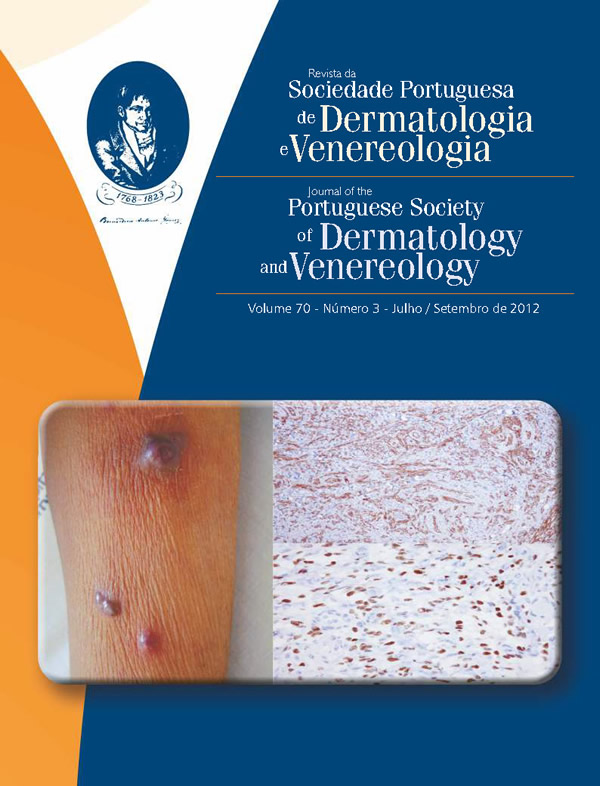IMPACTO PSICOSSOCIAL DA ACNE
Resumo
Introdução: A acne tem impacto significativo na auto-estima e qualidade de vida dos doentes. Diversos estudos demonstram alterações psicológicas incluindo ansiedade, inibição social, depressão e ideação suicida nos doentes com acne. Desde a aprovação da isotretinoína para o tratamento da acne grave ou refractária, têm surgido relatos de casos e com interesse suscitado pelos media para uma associação entre o tratamento com isotretinoína e a depressão/ ideação suicida.
Material e Métodos: Revimos a literatura disponível com o intuito de avaliar o impacto da acne no quotidiano dos doentes e a relação do tratamento com isotretinoína e depressão ou ideação suicida.
Resultados: A percepção da gravidade da acne pelo doente difere da avaliação médica, o que se traduz em repercussões psicológicas e sociais, por vezes difíceis de prever. Da revisão efectuada, não foi encontrada relação causal entre o tratamento com isotretinoína e estados depressivos ou comportamentos suicidas. Em muitos casos, o tratamento melhora estes sintomas.
Conclusões: O impacto da acne, muito além do impacto cutâneo, impõe que o reconhecimento dos sinais psicológicos pertinentes seja uma rotina na consulta, de modo a estabelecer estratégias de tratamento adequadas, individualizadas caso a caso.
PALAVRAS-CHAVE – Acne; Impacto psicossocial; Depressão; Isotretinoína.
Downloads
Todos os artigos desta revista são de acesso aberto sob a licença internacional Creative Commons Attribution-NonCommercial 4.0 (CC BY-NC 4.0).








